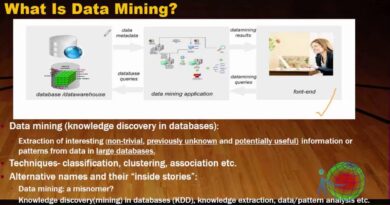Advance Search Engines with it’s complete architecture diagram and list of internet search engines
Advance Search Engines with it’s complete architecture diagram and list of internet search engines
Contents [hide]
- 1 Advanced Search Engines: Architecture & List of Search Engines
- 2 1. Architecture of a Search Engine
- 3 (A) Web Crawling (Data Collection)
- 4 (B) Indexing (Database Creation)
- 5 (C) Query Processing & Ranking (Search Results Generation)
- 6 2. Search Engine Architecture Diagram
- 7 3. List of Popular Search Engines
- 8 General Search Engines
- 9 Privacy-Focused Search Engines
- 10 Specialized Search Engines
- 11 Dark Web Search Engines
- 12 Conclusion
Advanced Search Engines: Architecture & List of Search Engines
Search engines are powerful tools used to retrieve information from the World Wide Web (WWW). They use complex algorithms, crawling techniques, and indexing methods to deliver the most relevant results.
1. Architecture of a Search Engine
A modern search engine follows a structured 3-step architecture:
(A) Web Crawling (Data Collection)
-
Crawlers or Spiders browse the web and collect web pages.
-
The robot.txt file on websites controls what the crawler can access.
-
Examples of web crawlers: Googlebot, Bingbot, Baidu Spider.
(B) Indexing (Database Creation)
-
The collected data is processed and stored in data centers.
-
Uses inverted indexing to map keywords to relevant web pages.
-
Meta tags, headings, and links improve search rankings.
(C) Query Processing & Ranking (Search Results Generation)
-
User enters a search query.
-
The search engine retrieves relevant pages from its index.
-
Ranking algorithms (like PageRank) prioritize results based on relevance.
2. Search Engine Architecture Diagram
Below is a simplified architecture of a search engine:
This cycle continuously updates the database and delivers fresh results.
3. List of Popular Search Engines
Here are some widely used search engines categorized by their functionality:
General Search Engines
Google – Most used, AI-based ranking (PageRank, RankBrain).
Bing – Microsoft’s search engine, integrates with Windows & AI tools.
Yahoo – Uses Bing’s search technology.
Baidu – The dominant search engine in China.
Yandex – Popular in Russia and nearby regions.
Privacy-Focused Search Engines
DuckDuckGo – No tracking, focuses on privacy.
StartPage – Uses Google results but ensures privacy.
Qwant – European search engine, respects user privacy.
Specialized Search Engines
Wolfram Alpha – Computational search engine for mathematical & scientific queries.
Ecosia – Environment-friendly, plants trees for every search.
Yippy – Focuses on clustering search results.
Dark Web Search Engines
Torch – Searches .onion websites.
Ahmia – Indexes Tor network sites.
Conclusion
Advanced search engines rely on crawlers, indexing, and ranking algorithms.
Google, Bing, and Yahoo dominate general web search, while DuckDuckGo and StartPage focus on privacy.
Specialized search engines like Wolfram Alpha provide unique capabilities.
Would you like details on SEO techniques or search engine ranking factors?



